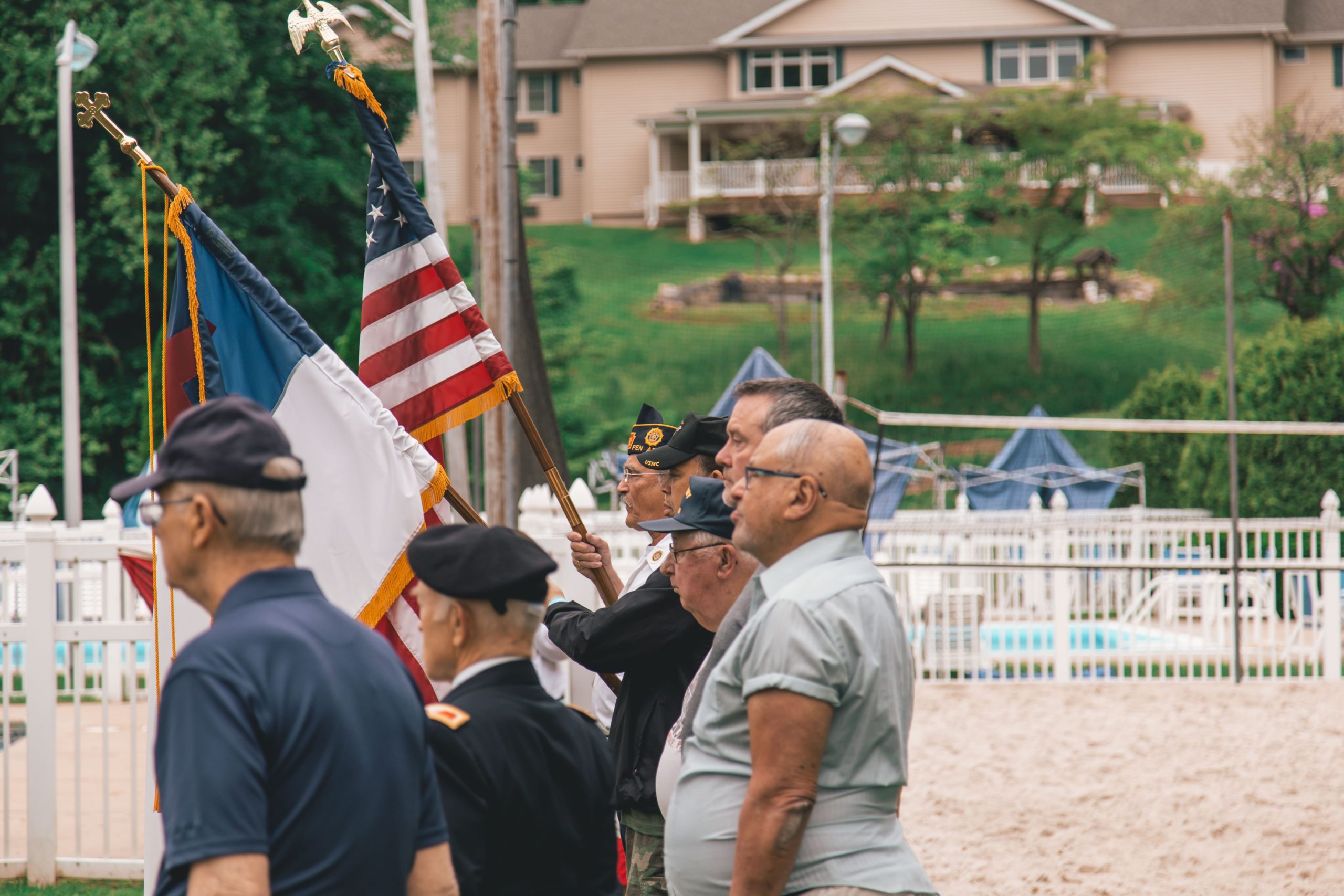The other day, I was at the grocery store working with a service-dog-in-training. He was wearing his camo vest and walking next to my cart, and this lady must have thought he was mine — as in, for my own disability — because she said in a grave tone, “Thank you for your service to our country.” It was unexpected, so I forgot my pre-loaded response. I gave a nervous laugh, said “thank you” and hurried away.
Responding to the “thanks for your service” line is tricky for many veterans. “What do they know about my service,” one of my Army vets says, “that makes it worthy of thanks? Do they know it’s mostly standing around, throwing rocks at tin cans, getting yelled at for bad shaves?” “What if I had to drop a bomb,” says another, “on a building full of civilians to save my teammates? Would they still thank me if they knew that?”
For some veterans, even assuming the best of intentions, the statement triggers insecurities. “Do they think I ran through a storm of gunfire to rescue a cat/puppy/kid?” says a Marine who spent two deployments watching ISIS torture videos to collect intelligence. “They’re thanking me for something I did or didn’t do, and there’s an implicit burden that my service lives up to their expectations.”
So there’s always this question of how to receive the thanks, and I used to oscillate between feeling patriotic and feeling pitied, until last year. I was at a military people’s barbeque where Marine Corps General extraordinaire Jim “Mad Dog” Mattis was the guest of honor. Soda in hand, he strolled around as we fielded him with questions about leadership, Marine-ship and what it was like to work for the POTUS.
Veterans Day was approaching, so at some point someone asked him, “How do you respond when someone thanks you for your service?” There was a pause. “Thank you for paying your taxes,” someone else threw out, and we all laughed. Then the general, after insisting we call him Jim, said he looks the person in the eye and tells them, “You’re worth it.”
I’ve thought about this a lot recently. At first, the line felt like a quip, albeit a gratifying one. But this year, I see it as so much more. It’s a shift of responsibility: from our service owning up to your expectations as a conceptual citizen, to your citizenship living up to our service. In ancient Greece, citizenship meant sharing the duties and privileges of membership in the “polis,” the city state. Today, it means a shared commitment to one another. To everyone who’s willing to come together to be a part of this country. It means remembering that, no matter what “side” you’re on, the “other side” is your fellow human. That they’re concerned with more than taxes or welfare. That they have families they care about, jobs they worry about losing.
Of course, it feels like every Veterans Day someone’s out to say, “Hey, remember our service was for something besides oil or feeding Hollywood movies.” But maybe that’s because it keeps needing to be said. I’m starting to see now, the same way I’ve told you my service is not what you think it is, that my country is not what I thought it was. Its non-white citizens are beaten in the streets, its politicians bicker through social media and its corporations capitalize on pandemic crises.
Still, with this writing, I’d like to thank you. Thank you for voting, thank you for staying home, thank you for working. Thank you for raising your families or studying. And thank you, most of all, for giving me something to believe in. For all those years I served with this ideal of a country that cared for its people, whose neighbors supported each other and whose people’s rights were upheld at any cost. I still do. So thank you, each and every one of you, for your citizenship. Because it makes our service worth it.
Contact Nestor Walters at waltersx ‘at’ stanford.edu.
